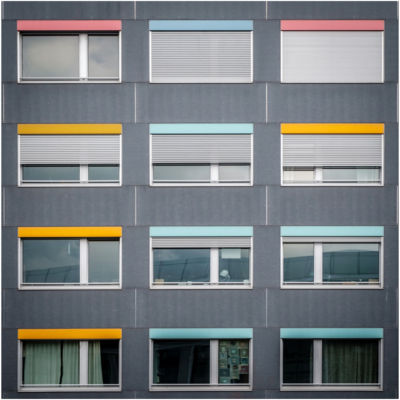Problems with the Apartment
problems with the Apartment

What should I do if something is broken in my apartment?
A landlord has to maintain safe and healthy living conditions in an apartment. So if something breaks that creates a serious safety and health threat in your apartment, the landlord has to fix it. This means problems like broken appliances, large holes in the wall or ceiling, leaking water, or a lack of utilities. It does not mean cosmetic things like scrapes on the paint or stains on the carpet.
If you discover a problem that you consider a health or safety threat, you should let your landlord know right away. Even if the problem is less serious, let your landlord know. Unless it is a really simple fix, don’t try to fix things yourself. If you make things worse, you will be responsible for any resulting damage. Any notice to your landlord about problems in the apartment should be in writing. Make sure that your letter to your landlord has a date on it, so you can prove when the landlord knew of the problem.
Most cities in Alaska have building codes that provide minimum standards for maintaining an apartment. If your problem is a really serious threat to heath or safety, your city government might be able to send out an inspector to determine if your apartment is up to code. The law prohibits your landlord from harassing you if you report potential code violations. But you should know that, if the inspector finds that your apartment is not up to code and condemns it, you may have to move out.
Can I withhold rent if there are problems with my apartment?
You can only withhold rent if your utilities (water/sewer, hot water, heat, electricity) in your apartment are not working. But you can’t withhold rent if the utilities are off because you failed to pay any utility bill that was your responsibility. Before you withhold rent, you have to give written and dated notice to the landlord. You must give the landlord a reasonable amount of time to fix the problem.
You have a couple of other options if your utilities are not working. You can pay for the utilities or repairs yourself and deduct the amount from your rent. You can move into a reasonably-priced hotel temporarily and not pay rent for that time period; you can also sue the landlord for the difference if your hotel costs more than your average daily rent, which almost certainly it will. With either of these options, you have to first give written notice to the landlord of your intent either to pay for the utilities or go to a hotel. You must give the landlord a reasonable time to fix the problem.
If you have problems like these, you can read more about what you can do in the Alaska Department of Law Landlord Tenant Handbook.
The problems with my apartment have not been fixed. Can I move out?
If problems with your apartment affect your use and enjoyment of the apartment, you can give the landlord a written notice that if he or she does not fix the problems within ten days, you will move out not less than ten days later (in other words not less than 20 days from the date of your notice). This can be an effective tool to get landlords to fix problems in your apartment. But you have to be ready to find another place to live if the landlord does not fix the problems. So, don’t give the landlord this type of notice unless you are really sure you want to move if the problems are not fixed.
If a fire or some natural disaster makes your apartment impossible to live in, you can immediately end your lease. Your landlord will have to return the remaining portion of your rent and any security deposit. If only part of the apartment becomes unlivable, then your rent should be reduced to reflect the diminished value of living in the apartment.
I think I am being discriminated against. What can I do?
A landlord cannot refuse to rent to someone because of sex, race, religion, national origin, color, physical or mental disability, or pregnancy. It is also illegal for a landlord to refuse to rent to someone because of marital status or change in marital status, because of a disabling disease that is not easily contagious (such as cancer or AIDS) or because a tenant has children. Some of these restrictions only apply to apartment buildings with more than four units. Others apply no matter what the size of the apartment building is.
Of course, it can be hard to prove discrimination, so try to figure out if the landlord is treating other people differently from you. If you already live in the apartment, talk to your neighbors to see how they are being treated. If you are trying to rent an apartment, have a friend who is a different race or religion (or different in whatever way you think you are being discriminated against) try to rent the apartment and see how they are treated. If your neighbors and friends are being treated differently, then it is possible that the landlord is discriminating against you. Or it could just be that you and the landlord have a personality conflict that has nothing to do with race, religion, or any other protected characteristics. If you do decide that you have a good case for discrimination, contact the Alaska State Commission for Human Rights (humanrights.alaska.gov; 274-4692 in Anchorage and 1-800-478-4692 outside of Anchorage); the Anchorage Equal Rights Commission (www.muni.org/departments/aerc; 343-4342) or the U. S. Department of Housing and Urban Development (www.hud.gov/complaints/index.cfm; 907-677-9800).
Are mobile homes different than apartments?
Yes. If you are renting a mobile home from someone else, then that rental will be the same as any other apartment. But if you own a mobile home, you may be renting a space in a mobile home park. Because mobile homes are hard to move, they can be evicted from rented space for only a few reasons, and they have more time to move off the premises. The owner of the mobile home park can always evict a mobile home if the space rent is not paid. The mobile home park owner can also evict a mobile home if the occupant commits a crime that threatens the safety of other people in the park, if there is a serious lease violation, or with 270-day’s notice if the park is being converted to a different use. But the park owner cannot evict a mobile home because of the age of the mobile home.



